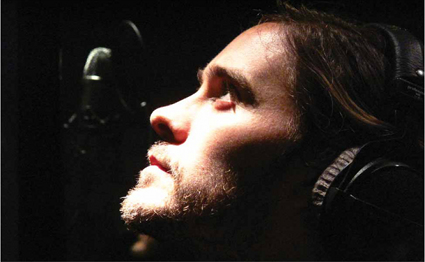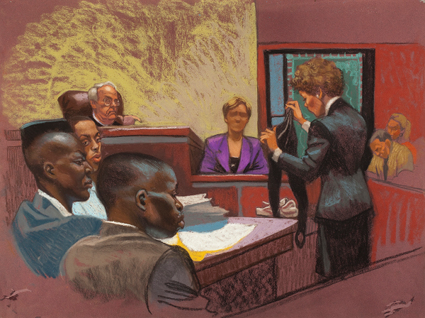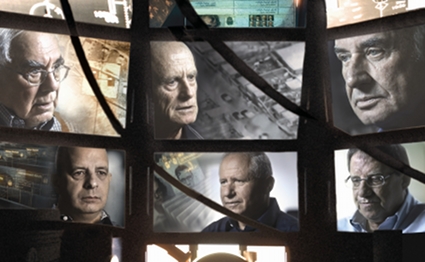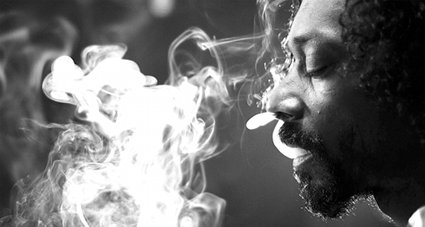

By Kim Voynar Voynar@moviecitynews.com
TIFF12 Preview: TIFF Docs
There are 32 films in the documentary section of TIFF this year — that’s six more than last year. Of these, I’ll be able to catch maybe five or six. This year’s doc slate is diverse and filled with so many interesting subjects, it’s going to be hard to narrow it down. Which docs I actually end up seeing this year at TIFF will depend upon my interest in the subject matter or director, and how the schedule I’m putting together on paper actually ends up working out in reality once I’m on the ground at TIFF. I usually end up catching at least of couple of docs at TIFF that end up being among my favorites of the year, and missing more that I end up wishing I’d seen, and probably that will be the case again this year. Hopefully the really good ones I end up not catching will roll over to Sundance or SIFF and I’ll get another chance at those I don’t catch at Toronto.
As with all fest previews, take this one with the generous grain of salt that most of the films on this list are the ones whose subject matter or director most interested me; your list might very well be completely different. Such is the fun and randomness of TIFF.
The Act of Killing
Joshua Oppenheimer, Christine Cynn, Anonymous, Denmark / Norway / United Kingdom
In this chilling and inventive documentary, executive produced by Errol Morris and Werner Herzog, the unrepentant former members of Indonesian death squads are challenged to re-enact some of their many murders in the style of the American movies they love … Unlike other nations where the perpetrators of genocide have been brought to justice or disgraced, in Indonesia the killers stayed in power, wrote their own triumphant history, and became role models for millions of young paramilitaries to this day. Co-director Joshua Oppenheimer has spent over a decade working with death squads and their victims, which comes through in his knowledge of and passionate investment in this subject. This is a film people will be talking about for years to come.
Comments: TIFF Canadian Premiere, playing Telluride Labor Day weekend before heading to TIFF; this doc doesn’t look terribly uplifting, but the premise is compelling enough to put it near the top of my “must see docs” list.
Artifact
Bartholomew Cubbins, USA
Telling harsh truths about the modern music business, Artifact gives intimate access to singer/actor Jared Leto and his band Thirty Seconds to Mars as they battle their label in a brutal lawsuit and record their album This Is War. The film is a true artifact of our times, as its subjects struggle with big questions over art, money and integrity … Leto and his band unexpectedly find themselves poised as a test case for the future of the music business. Should they fight the corporation or is it a battle they can’t win? In the film, we live through the band’s decision making against the backdrop of the 2008 economic meltdown. After years in the making, this documentary is a true artifact of our times.
Comments: TIFF World Premiere. Bartholomew Cubbins is Leto’s pseudonym, so I’m not expecting a great deal of objectivity in this doc, but the subject — who owns an artist’s work? — is relevant in both the music and film industries, and I’m looking forward to Leto’s perspective on the Thirty Seconds to Mars/EMI debacle.
The Central Park Five
Ken Burns, David McMahon, Sarah Burns, USA
The devastating new documentary by Ken Burns, Sarah Burns and David McMahon on the infamous “Central Park Jogger” case details how a rush to judgment by police, media and an outraged public led to five black and Latino teenagers being convicted for a heinous crime that they did not commit … For Ken Burns, the story of the Central Park Five taps into the recurring theme of race in America that runs through his work, from The Civil War to Baseball to Jazz to Unforgivable Blackness: The Rise and Fall of Jack Johnson. While Burns is better known for his excursions into the deeper past, this film engages living memories and presents a taut narrative that commands a theatrical experience, and stands in contrast to his episodic television work. This story of how innocent men were scapegoated plays out like a suspense thriller. Their fate might have befallen anyone who had the wrong skin colour in the wrong place.
Comments: Cannes Debutante. Hitting Telluride before TIFF. Directorial debut of Sarah Burns, daughter of Ken Burns, who co-directed along with Sarah Burns’ husband, David McMahon. Worth catching, and this one is supposed to be more “theatrical” than Ken Burns other work.
The Gatekeepers
Dror Moreh, Israel / France / Germany / Belgium
In an unprecedented and candid series of interviews, six former heads of the Shin Bet — Israel’s intelligence and security agency — speak about their role in Israel’s decades-long counterterrorism campaign, discussing their controversial methods and whether the ends ultimately justify the means … As these men reflect on troubled careers constantly beset by life-or-death decisions, hard questions keep coming to fore. What constitutes acceptable “collateral damage”? What is the virtue of a “proportional” response? Under what conditions does somebody have the authority to order another person’s death? The Gatekeepers offers a myriad of explanations, but no apologies.
Comments: One of three docs, along with State 194 and A World Not Ours (see below) that concern Israeli and Palestinian issues. This one has the potential to be a little “talking heads,” but the subject matter bears paying attention to; it’s also the only one of the trio showing at Telluride. World Premiere at Telluride before heading to TIFF.
Mea Maxima Culpa: Silence in the House of God
Alex Gibney, USA
Academy Award®–winning documentary filmmaker Alex Gibney (Taxi to the Dark Side) explores the charged issue of pedophilia in the Catholic Church, following a trail from the first known protest against clerical sexual abuse in the United States and all way to the Vatican … Gibney’s investigation leads from Wisconsin to Washington, D.C., Ireland, Rome and beyond. He delves into the unsavoury role that Pope John Paul II played in cover-ups, and examines the pivotal position occupied by Cardinal Joseph Ratzinger — now Pope Benedict XVI — the former Vatican overseer of sex-abuse cases. Mea maxima culpa translates as “my most grievous fault” in the old Latin Catholic mass. Who has the courage to make that confession?
Comments: TIFF World Premiere. Directed by Alex Gibney, which makes this one of my must-sees at TIFF.
Reincarnated
Andy Capper, USA
This intimate documentary portrait directed by Vice Magazine editor Andy Capper follows hip hop legend Snoop Dogg as he undergoes a spiritual odyssey/career reinvention in Jamaica and emerges as the rechristened “Snoop Lion” … At age forty-one, Snoop is considered an “elder” in the rap community. But a life beset by personal loss (including the recent untimely passing of cousin and frequent collaborator Nate Dogg) and a career slinging rhymes about “hustling and making money and drug dealing and shooting” has taken its toll. An extraordinary look at a Snoop in transition — trading violence for peace, replacing “Murder Was The Case” with “No Guns Allowed” — Reincarnated shows the Dogg becoming the Lion he feels he was destined to be.
Comments:Snoop Dog turning over a new spiritual leaf? I have to admit, I’m intrigued by this one. TIFF World Premiere.
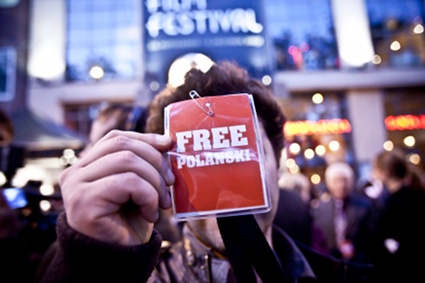
Roman Polanski: Odd Man Out
Marina Zenovich, USA
Marina Zenovich dives into the mysterious details of Roman Polanski’s arrest in Switzerland in 2009, which came suspiciously soon after the release of her ground-breaking 2008 documentary Roman Polanski: Wanted and Desired. In this follow-up investigation, Zenovich raises fresh questions about legal manipulation, media distortion and power politics … When it comes to Polanski’s case, opinions have always been more prevalent than facts. An esteemed journalist is caught in an unguarded moment saying, “just take him out and shoot him.” But Zenovich unearths fresh perspectives and new questions. The film leads us to think about broader questions of legal manipulation, media distortion, and power politics. No matter how much you think you understand this case, you have a lot to learn.
Comments: I thought Zenovich’s 2008 Polanski doc pretty much said it all about Polanski; apparently there’s more to discover, though. I was pleasantly surprised by the first one, so this one might be worth a shot. TIFF World Premiere, then moving on to the New York Film Festival.
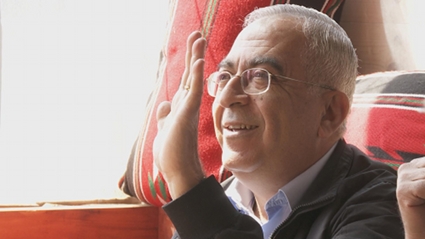
State 194
Dan Setton, Israel / Palestine / USA
Filmmaker Dan Setton gained unprecedented access to the highest circles of the Palestinian leadership as he chronicles Prime Minister Salam Fayaad’s quest to have Palestine recognized by the United Nations as an independent state … Through Fayyad’s efforts, we gain insight into a whole generation of Palestinians who are pursuing a far more positive agenda than the kind that normally makes the news. Emmy® and Peabody Award–winning director Dan Setton, who has worked extensively in the Middle East, makes a compelling human drama out of Fayyad’s efforts to persist against the odds, and he helps viewers make sense of the thorny issues standing in his way, from multiplying Israeli settlements in the West Bank to the internal strife between Fatah and Hamas. Fayyad is clear-eyed about the obstacles facing him while retaining a tremendous optimism and an unshakeable will to prevail.
Comments: TIFF World Premiere. Three docs this year, The Gatekeepers, A World Not Ours, and State 194, explore different sides of issues around Israeli/Palestinian relations. I plan to catch all three.

A World Not Ours
Mahdi Fleifel, United Kingdom / Lebanon / Denmark
Imbued with nostalgia and striking a wide range of emotional notes, filmmaker Mahdi Fleifel travels to the Lebanese refugee camp of Ain El Helweh to explore how the camp’s displaced people use the World Cup series to articulate their own ideas of home, community, victory and hope … Fleifel inherited a compulsion for videotaping from his father, and he draws upon a lively family archive. The film is peppered with allusions to Western influences, from Michael Jackson to Rambo to Neil Young, and scored with nostalgic music befitting a Woody Allen soundtrack. For Western viewers, those familiar touchstones — along with Fleifel’s witty narration in English — help us to project ourselves into a world that’s foreign in many other ways. As we eavesdrop on Fleifel’s conversations with the camp residents, we hear an unfiltered take on Palestinian grievances with their own political leaders, Lebanon and Israel. The six decades since Ain el-Helweh was built have been packed with tumultuous history, and Fleifel’s personal journey is an inviting way to process it. Maybe you’ve never heard of Ain el-Helweh before, but after this film you’ll never forget it.
Comments: TIFF World premiere, and one of a trio of films about Israeli and Palestinian issues. This one looks to be the most accessible of the lot; I’m definitely intrigued to learn more about its subject.
* All film descriptions are from the TIFF catalog.










